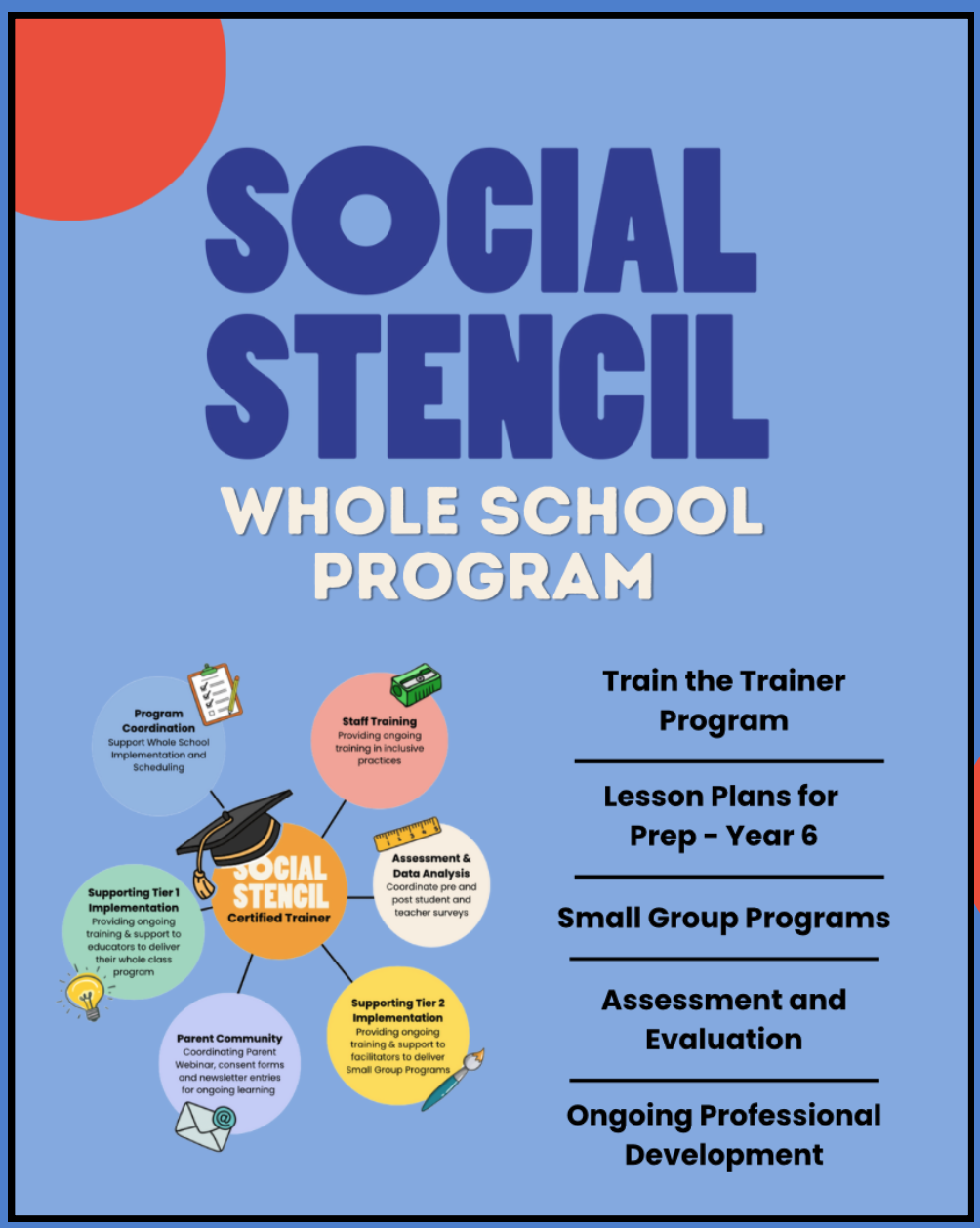What is social stencil?
Social Stencil is an Australian neuroaffirming social-emotional curriculum that supports all young people to explore and understand themselves and others; our social, emotional, sensory, and learning similarities and our differences. At Social Stencil we call that peer-to-peer learning.
Young people then work together to understand friendship concepts, why and how conflict happens, and a skill set of strategies to manage conflict and life’s tricky moments.
“Recognising and understanding ourselves and others lays the foundation for positive peer relationships and inclusive classrooms where every individual is valued and belongs, ready to work and learn together”. Dr Connie Buckingham
Social stencil is evidence-based
Social Stencil has been internally and independently evaluated since its inception in 2008. The major evaluation occurred between 2009-2019 as part of a PhD research project undertake by program author Dr Connie Buckingham (Buckingham, C (2020). Evaluating a Universal Social Information Processing Skills Program for Girls: The Friendship Saver Program. University of Melbourne). Two key outcomes were notable:
Click on ‘Research’ to read more about internal and external research evaluating program impact.








